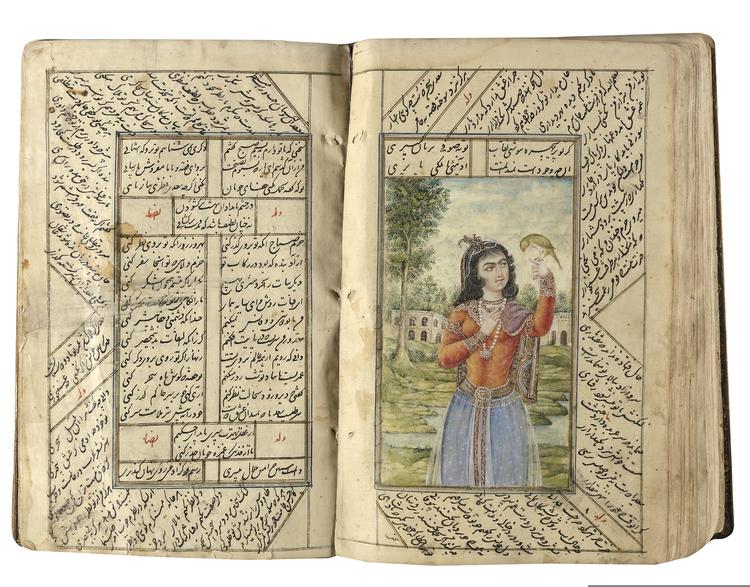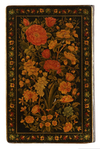A COMPLETE WORK OF SAADI, KOLIYAT SAADI, PERSIA QAJAR, 1235 AH/1819 AD
Persian manuscript on paper, each page with a central panel enclosing 15 lines in nastaliq black script, surrounded by diagonally written scripts, ruled in gilt and blue borders, each chapter with an opening biofolio with a gilt and polychrome decoration. Multiple miniatures painted in gouache colors with different scenes of typical Qajar era.
In Qajar lacquer binding decorated with dense design of flowers.
17 by 26 cm.
This book contains different articles or chapters of al-Saadi work.
1-The Gulistan: prose written, means ‘the rose garden’ and the text is divided into eight chapters called babs (‘gates’) corresponding to the eight gates to the garden of paradise. It is a moralistic and anecdotal work mostly written in hikayats (short prose vignettes) combined with verse. These are light and humorous in tone, particularly in comparison to his earlier work, the Bustan. The poet writes in the Gulistan’s epilogue that his aim was to deliver advice in palatable form.
2- The Bustan: contains the fruits of Saadi's long experience and his judgements upon life, and is illustrated by a vast collection of anecdotes. It includes accounts of Saadi's travels and his analysis of human psychology. He often mentions his accounts with fervour and advice similar to Aesop's fables. The book has ten chapters regarding the issues of ethics and training; namely, justice, mercy, love, humility, contentment, devotions, education, gratitude, repentance, and praying.
3- Persian Poetry
CATALOGUE NOTE
Abu-Muhammad Muslih al-Din bin Abdallah Shirazi, better known by his pen name Saadi, was a major Persian poet and prose writer of the medieval period. He is recognized for the quality of his writings and for the depth of his social and moral thoughts. Saadi is widely recognized as one of the greatest poets of the classical literary tradition, earning him the nickname "Master of Speech" among Persian scholars.











